AUTOMOTIVE MANUFACTURER BMW – through its BMW i brand – has formally entered into the world of public transport and bus production via Turkish manufacturer Karsan, which launched its new Jest e-bus using i3 running gear, it’s announced recently.
Karsan is due to deliver its first customer orders of the Jest Electric bus in December, 2018.
With the BMW Group’s i division representing the company’s, “networked mobility services, visionary vehicle concepts and a new premium philosophy that draws strongly on the idea of sustainability,” its foray into public transport is another field for its “pioneering emissions-free drive technologies”, it states.
The Karsan Jest electric bus – the first product of the unique collaboration with BMW which made its debut at the recent 2018 IAA Commercial Vehicles show in Hannover, Germany – is designed specifically for use in inner-city traffic using the electric motors and high-voltage batteries developed for the BMW i3.
BRAND DNA
Karsan CEO Okan Bas stated that they try to find the necessities of the cities and produce specific solutions for each.
He said: “We develop our products by closely following the innovations in electric vehicle technology. We are proud to serve in 20 different countries in the world with our innovative product solutions to leave a better world to the next generations.”
“With our innovative brand DNA and our mission to produce sustainable solutions, we will continue to work on battery electric vehicles and develop our product range in this direction.”
With the agreement between the BMW Group and Karsan signed, the Jest Electric bus, which is produced in Bursa, Turkey, for both domestic and international markets, will “enable public transportation network operators to provide their passengers with comfortable and locally emissions-free travel on inner-city roads,” says BMW.
ON THE BUSES
The electric motors and high-voltage batteries developed independently by the BMW Group are characterised by excellent performance qualities and a high degree of reliability, it states.
They are produced at the BMW plant in Dingolfing, southern Bavaria. The BMW i3 electric synchronous motor powering the Karsan Jest Electric generates a peak output of 125kW/170hp and a maximum 250Nm (290Nm, collaborating with a single-ratio gearbox, says Karsan).
The energy required is supplied by a lithium-ion battery, whose compact dimensions and low weight make it perfect for a range of applications, says BMW.
The high-voltage battery consists of eight modules comprising 12 cells each and provides a capacity of up to 44 kilowatt-hours (kWh). With a combination of two high-voltage batteries, pre-series prototypes of the Karsan Jest electric achieved a capacity of 88kWh and, therefore, a range of 210 kilometres, it’s claimed.
When used on scheduled services, this means the city bus can run for 18 hours on end without an interim stop to refresh its energy supplies, according to the German car maker. Additionally, the compact size of the electric motor and high-voltage battery are advantageous in terms of interior space, it adds.
Measuring some six metres in length, the Karsan Jest electric offers room for up to 26 passengers – four more than the previous conventionally powered version of the model. The city bus is fitted with low-floor technology, which gives passengers with pushchairs and wheelchairs convenient access, it states.
EARLY ORDERS
Bas indicated that they received the first orders in a short time for Jest Electric.
“We will be delivering Jest Electric pre orders from Romania, Portugal, Spain, Slovakia and France soon. European countries show great interest for Jest Electric, which is different from its competitors with its original size and technology. In addition we had the opportunity to exhibit our 8.1-metre long Atak Electric prototype [57 passenger capacity], which is developed by our R&D team with support from the BMW Group, at IAA … and our Positive Energy Experience event.”
“We plan to start mass production of the Atak Electric next year, which can be charged in just 2-5 hours and offers a range up to 300km,” he added.
FUTUREPROOF?
The electric motor produced by BMW, which operates in Jest Electric, uses a single-speed transmission and produces 125kW and 290Nm. Jest Electric – which can be equipped with 33-, 44-, 66- and 88kWh batteries developed by BMW – offers ranges of up to 210km and it can be charged in six hours with traditional AC chargers and “in just 0,7 hours with fast charging stations”. In addition, the batteries can charge themselves up to 25 per cent, thanks to the regenerative braking system that provides energy recovery.
Karsan Jest Electric, which stands out with its “high manoeuvrability, spacious interior, dynamic design and outstanding traction performance brightens up the future with the silent travel it offers,” the company claims.
The bus is equipped with a 10.1-inch multimedia screen, digital display panel, keyless entry/drive, USB output and Wi-Fi compatible infrastructure while offering a comfort (level) similar to a passenger car with its independent suspension system on four wheels, the company says.
ABOUT KARSAN
Vehicle manufacturer Karsan was founded in 1966 and operates its own development and production facilities in Bursa, western Turkey, acting both as a production partner to international automotive companies as well as developing and producing its own vehicles for local and long-distance transport, it states.
The product portfolio ranges from small vans, city buses and coaches to articulated buses for use on scheduled services.
“Collaboration with the BMW Group enables us to meet our customers’ needs in the electric vehicle segment, too, as well as helping us take a major step forward in our transformation to becoming a supplier of sustainable mobility solutions,” explained Okan Bas.
ABOUT BMW i
BMW i is represented in 74 countries with the models BMW i3 (electrically powered vehicle for urban regions), the BMW i8 (plug-in hybrid sports car) and BMW iPerformance automobiles (all BMW plug-in hybrid vehicles).
BMW i taps into new target groups on behalf of the company as a whole and serves as an incubator for innovations, it states.
Once technologies have been successfully applied for the first time to BMW i, they are transferred to the BMW parent brand, apparently.
Other business areas associated with BMW i are DriveNow (car sharing); ReachNow (car sharing 2.0); ChargeNow (simple access to the world’s largest network of charging stations); ParkNow (simple location, reservation and payment of parking spaces); BMW i Ventures (investment in young companies focusing on urban mobility); BMW Energy (energy services) and the Competence Centre for Urban Mobility (consultation service for municipal authorities).
DIVERSE BATTERY USE
Public transportation is the latest of a whole range of spheres of activity in which BMW i technology enables enhanced sustainability, says the company.
Last year it also supplied energy storage technology for local emissions-free mobility to Streetscooter GmbH (a 100 per cent subsidiary of Deutsche Post), plus a company called Torqeedo – a manufacturer of boat drives.
It’s also deployed its batteries as stationary energy storage units for power generated from renewable energy sources, namely wind and solar plants.
Photography: courtesy BMW + Karsan



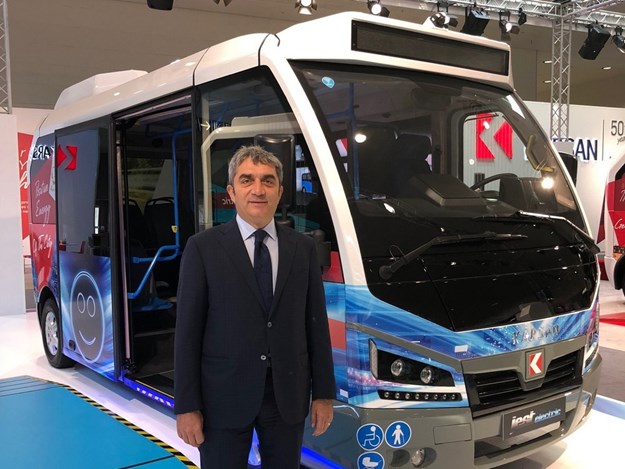
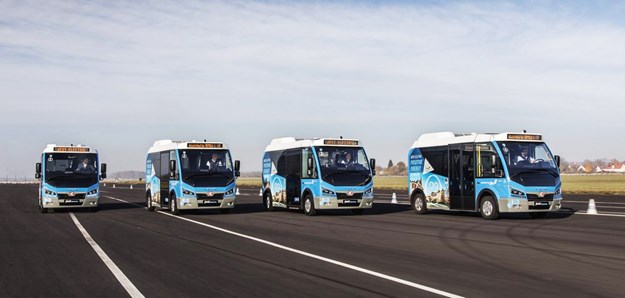
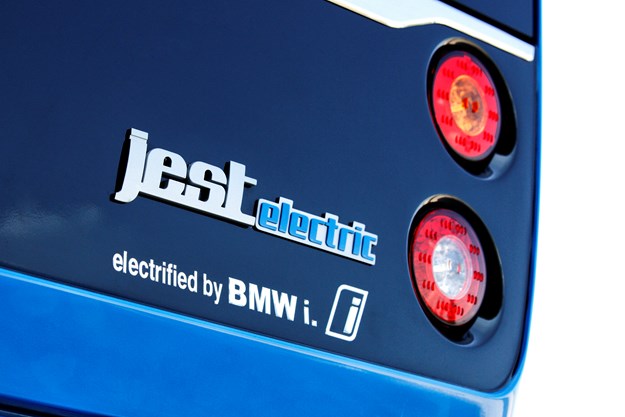
.png)
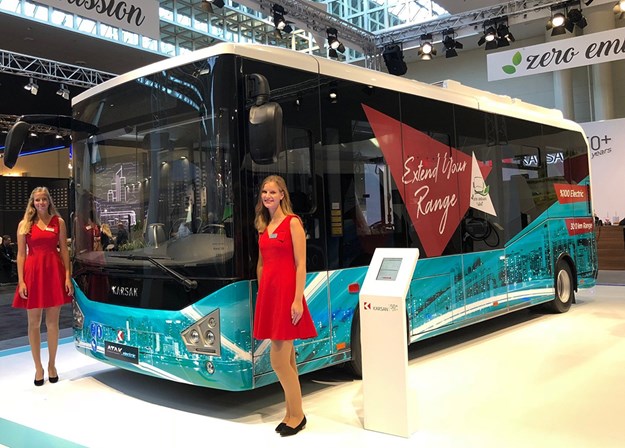
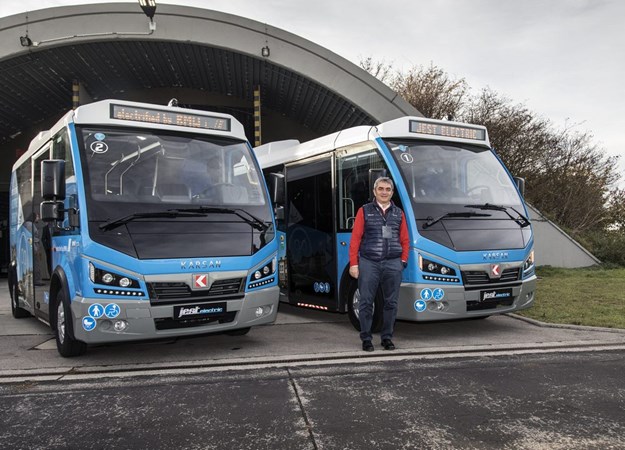
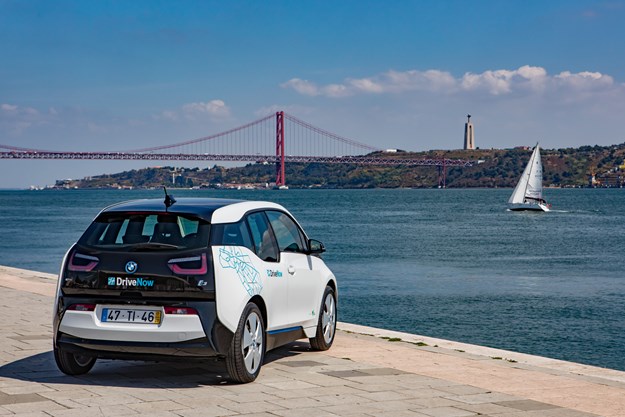
.png)